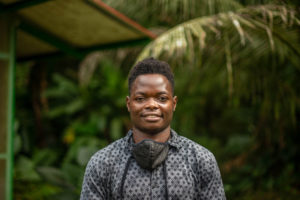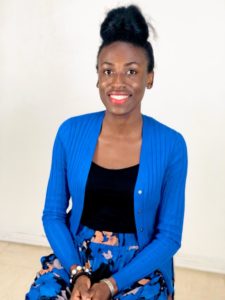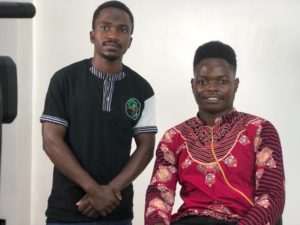Winning the Wege Prize
The results are in: Three EARTH University students and their teams won first and second place in the 2021 Wege Prize.
Before hearing their names announced in victory, Victoria Akwamaa (’22, Ghana), Mastercard Foundation Scholar Winfred Alfred Nziku (’23, Tanzania), and Tennyson Nkhoma (’23, Malawi), a Whitney McMillan scholar, had harnessed their boundless creativity and invested nine months in intensive collaboration across timezones to develop solutions to pressing socioenvironmental issues.
The Wege Prize is an annual competition that challenges university students from around the world to team up with peers – across disciplines, institutions, and cultures – to humanely redesign the global economy. The top three teams receive cash prizes to operationalize their respective project.
In first place
US$15,000 prize
Victoria worked with students from three other universities to build Agritrade Hub, a company that uses tons of freely available sawdust – a common industrial waste material – as a substrate for growing high-protein oyster mushrooms to cheaply feed malnourished populations. Plus, any parts of the fungal production that do not get consumed can be converted into compost to further lessen input costs.
Victoria and her teammates have also been campaigning for interested communities to plant more trees from which the mushrooms can be harvested. Those same trees would also mitigate some of the uncomfortable consequences of climate change through their ecosystem services: shade, water retention, erosion reduction, carbon sequestration, and more. The team has already successfully piloted the project in Sokoban, Ghana, a village dedicated to wood production.
“Thanks to all the learning I have done at EARTH to become an agent of change and positively transform my country, I now have the tools to not only compete in the Wege Prize – but to win it,” Victoria says. “The University has helped me to excel on a team and be a better leader.”
In second place
US$10,000 prize
Tennyson and Winfred, along with three students from African universities, formed Sutote (Sustainable Tomato Technology), which aims to eliminate the widespread use of synthetic pesticides in tomato production by formulating effective, not-toxic-to-humans organic pest-control solutions made from the ornamental plant Tithonia diversifolia, better known as the tree marigold or the Mexican sunflower.
“This plant is used in some cultures as a natural medicine,” Tennyson says, “which means our product is one that heals people as it heals the soil.” In addition, the team’s plans outline the recapture of plant waste to produce biogas, an otherwise untapped energy source that can be used to fuel cookstoves.
Competition structure
The nearly 30 participating teams had to complete four phases and answer the fundamental question: How can we create a circular economy? All participants built projects that integrated key considerations such as the reuse of raw materials and value-added enhancements.
“This recognition is a way to demonstrate just how capable EARTH students are at generating solutions that improve the lives of millions of people around the world. We will use the prize money to do that – and to do so sustainably,” Tennyson adds. “The Wege Prize has helped us to move forward in solving sustainability problems that affect countless people in our countries. That means a lot to us.”







